World
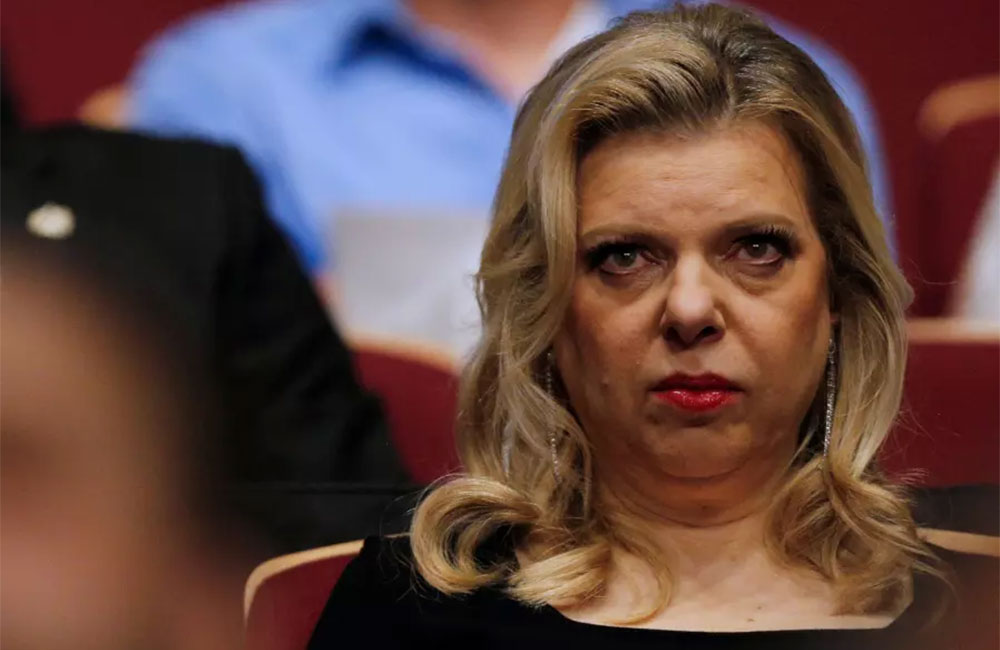
Israeli PM's wife charged with fraud
Wife of Israeli Prime Minister Benjamin Netanyahu has been charged with fraud relating to the alleged misuse of state funds.
Sara Netanyahu is charged with misusing 359,000 shekels ($100,000; £77,000) for catering services at the prime minister's official residence.
She is also charged with a breach of trust following a police inquiry, the justice ministry says.
Netanyahu has denied any wrongdoing. Her lawyers described the indictment as absurd and delusional.
On Thursday, she was charged along with Ezra Seidoff, a former deputy director-general of the prime minister's office.
The Jerusalem District Attorney's Office said the decision to indict both Netanyahu and Seidoff was made "after reviewing all evidence and weighing all circumstances of the case".
Last year, Attorney General Avichai Mandelblit announced that he was considering charging Netanyahu over the allegations following a long-running investigation, which has been the subject of intense speculation in the Israeli media.
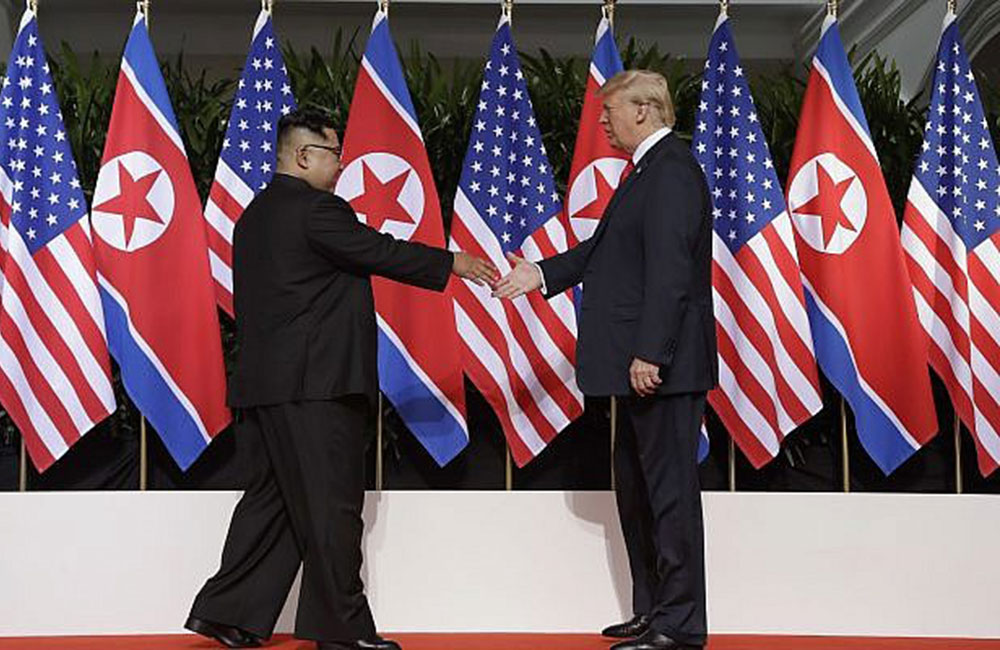
Trump, Kim meet for historic handshake and summit
Donald Trump and Kim Jong Un made history on Tuesday, becoming the first sitting US and North Korean leaders to meet and shake hands ahead of their attempt to negotiate to end a decades-old nuclear stand-off.
On a small stage bedecked with the US and North Korean flags, the two leaders strode toward each other and shook hands, with Trump grasping Kim on the shoulder, before walking off for their meeting.
As they sat down for their one-on-one meeting, the US leader predicted a “terrific relationship” with Kim.
“We will have a terrific relationship, I have no doubt,” Trump said amid smiles and backslapping that belied the decades of tension and blood spilled between the two Cold War foes. 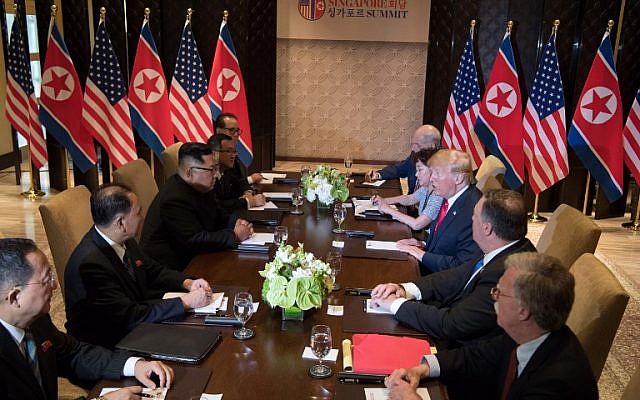
US President Donald Trump (R) gestures as he meets with North Korea’s leader Kim Jong Un (L) at the start of their historic US-North Korea summit, at the Capella Hotel on Sentosa island in Singapore on June 12, 2018. ( AFP PHOTO / SAUL LOEB)
North Korea and the United States have overcome the obstacles of a difficult history to hold their summit in Singapore, the North’s leader Kim Jong Un said as the unprecedented meeting opened Tuesday.
“The way to come to here was not easy,” Kim said, sitting at a table with Trump. “The old prejudices and practices worked as obstacles on our way forward but we overcame all of them and we are here today.”
The one-on-one meeting concluded after around 48 minutes Tuesday. The two men met with only their interpreters, before going into a second meeting where they are joined by key aides.
Trump said the meeting with Kim was “very, very good” and that the two have an “excellent relationship.”
Trump was flanked in the larger meeting by chief of staff John Kelly, Secretary of State Mike Pompeo and national security adviser John Bolton. They sat across the table from Kim and his team.
Trump said Tuesday at the beginning of expanded discussions with aides from both countries that “We will solve a big problem” and “a big dilemma.”
He talked about the pair achieving “tremendous success together” and predicted that “it will be successful. It will be done.”
It was hard to hear the president and Kim over the constant clicking of camera shutters, and it remained unclear precisely what he was referring to.
US President Donald Trump (3rd R) and North Korea’s leader Kim Jong Un (3rd L) sit down with their respective delegations for the US-North Korea summit, at the Capella Hotel on Sentosa island in Singapore on June 12, 2018. Donald Trump and Kim Jong Un became the first sitting US and North Korean leaders to meet, shake hands and negotiate to end a decades-old nuclear stand-off. (AFP PHOTO / SAUL LOEB)
The extraordinary summit — unthinkable only months ago — comes after the two nuclear-armed foes appeared on the verge of conflict late last year as they slung personal insults and Kim conducted nuclear and missile tests.
In a series of tweets early Tuesday, Trump indicated that summit preparations were “going well and quickly”.
“We will all know soon whether or not a real deal, unlike those of the past, can happen,” he tweeted — before hitting out in a subsequent post at “haters & losers” who see the summit itself as a risky up-front concession to Kim.
Pointing at the recent release of three American hostages and Pyongyang’s pledge to refrain from further nuclear or missile tests, Trump charged that “these pundits, who have called me wrong from the beginning, have nothing else they can say!”
“We will be fine!” he tweeted.
Under heavy security, the leaders left their two hotels for the palms and whitewashed walls of Singapore’s ultra-exclusive Capella Hotel, where the summit takes place.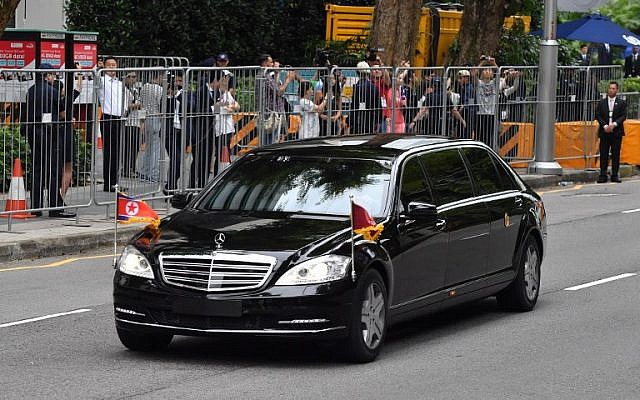
A motorcade transporting North Korea’s leader Kim Jong Un sets off to Sentosa, the resort island where Kim is scheduled to meet with US President Donald Trump for a US-North Korea summit, from his hotel in Singapore on June 12, 2018.( AFP PHOTO / ADEK BERRY)
The face-to-face with Kim is a far cry from last year when Trump called on the international community to exert “maximum pressure” to buckle the reclusive regime and threatened to unleash “fire and fury like the world has never seen” if Pyongyang continued to threaten the US.
For his part, Kim called Trump a “mentally deranged US dotard” and said he would “tame” him, “with fire”.
That will seem a distant memory when the two men will walk towards each other and then sit down for an initial half-day of meetings with ramifications for the entire world.
It is a historic meeting for both men — perhaps comparable to president Richard Nixon’s 1972 visit to China, or Ronald Reagan’s summit 1986 with Mikhail Gorbachev in Reykjavik.
It is potentially legacy-defining — as long as they can disprove critics’ fears that the meeting will be more about drama than detail.
The North has promised to give up its weapons in the past, while a long history of previous agreements have ultimately foundered.
“If there is no statement of intentions to move toward a peace treaty, if there’s no statement from the North Korean side on denuclearisation, we’re going to find ourselves very quickly in a very hollow summit,” said Ryan Hass of the Brookings Institution.
If that happened, he added, “quickly we’ll move into a space of mutual recrimination and finger-pointing about whose fault it was”.
(AFP)
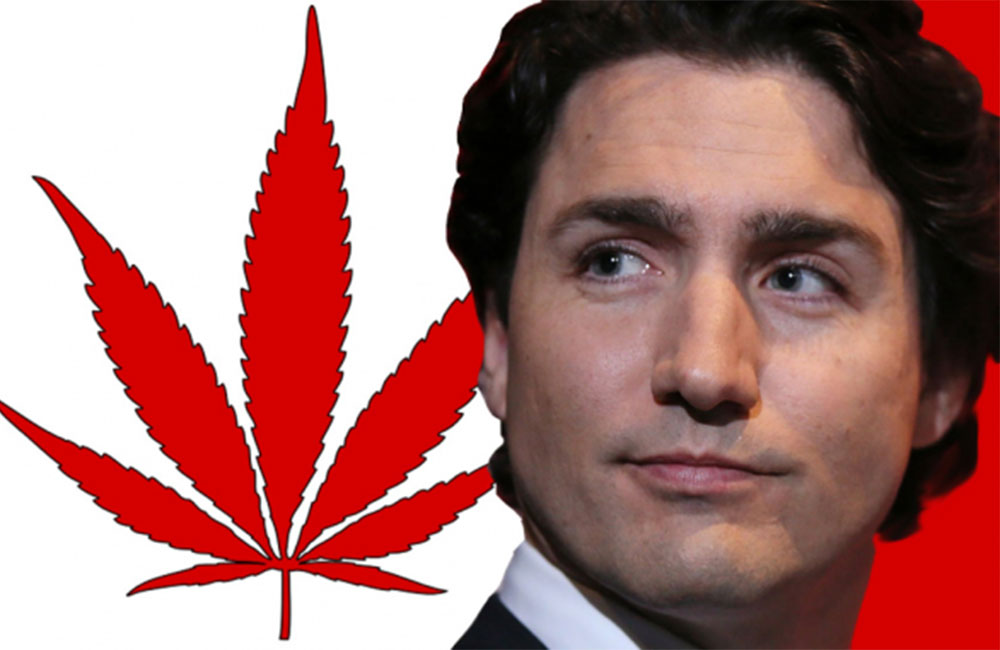
Pot will be legal from Oct. 17, 2018: Canadian PM
Prime Minister Justin Trudeau announced today that Canadians will be able to consume marijuana recreationally without criminal penalties starting on Oct. 17, 2018 — many months later than the government's initial target date.
"One of the things that we heard very clearly from the provinces is that they need a certain amount of time to get their bricks and mortar stores — their online sales — ready. Producers need time to be able to actually prepare for a regimented and successful implementation of the regime ... This is something that we want to get right," Trudeau told reporters at a press conference held today before the House of Commons rises for its summer recess.
"By giving the provinces more time to ensure that they are fully ready for the day of coming into force of this legislation, it will be a smooth success in all the ways that we can hope for."
A historic bill to legalize and regulate pot has passed in Parliament, but consumption is still not legal, says Justice Minister Jody Wilson-Raybould. (Frederic J. Brown/AFP/Getty Images)
While the federal government was responsible for the bill that will ultimately legalize recreational marijuana possession, home growing and sales to adults — by dismantling key aspects of the Criminal Code that ensured prohibition for 95 years — the practical details of implementing legalization have been left largely to the provinces and territories.
As is common in the Canadian system of federalism, each province has taken a different approach — and some are more prepared than others. New Brunswick, for example, has already built its first retail storefront, while Nunavut only passed its legal framework on Tuesday.
The government has long said there would be a buffer of eight to 12 weeks between the bill's passage and full legalization to allow provinces to get their systems up and running to sell recreational marijuana from storefronts.
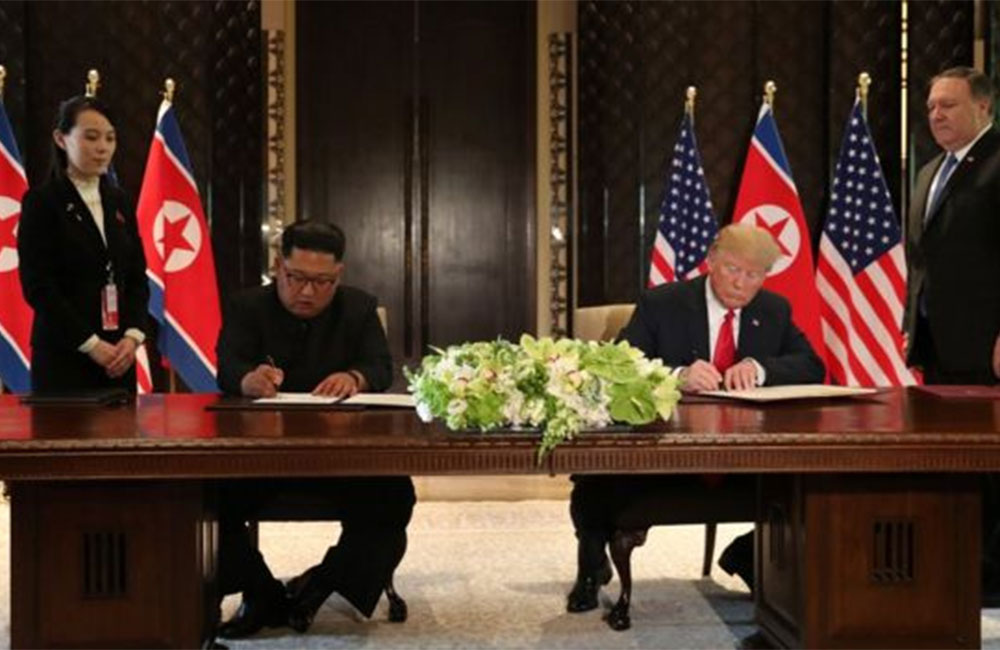
US and North Korean leaders hold historic talks
Donald Trump and Kim Jong-un have become the first sitting US president and North Korean leader to meet, an unprecedented development after a year of exchanging threats.
The pair shook hands at a luxury hotel on Singapore's Sentosa island before proceeding to talks.
After the summit the leaders signed a "comprehensive" document, promising a new relationship between the nations.
They had been discussing defusing tensions and nuclear disarmament.
The document commits North Korea to work towards "the complete denuclearisation of the Korean peninsula" and promises "new relations" between Washington and Pyongyang.
There was also a commitment to build "a stable and lasting peace" on the Korean peninsula.
Source : BBC
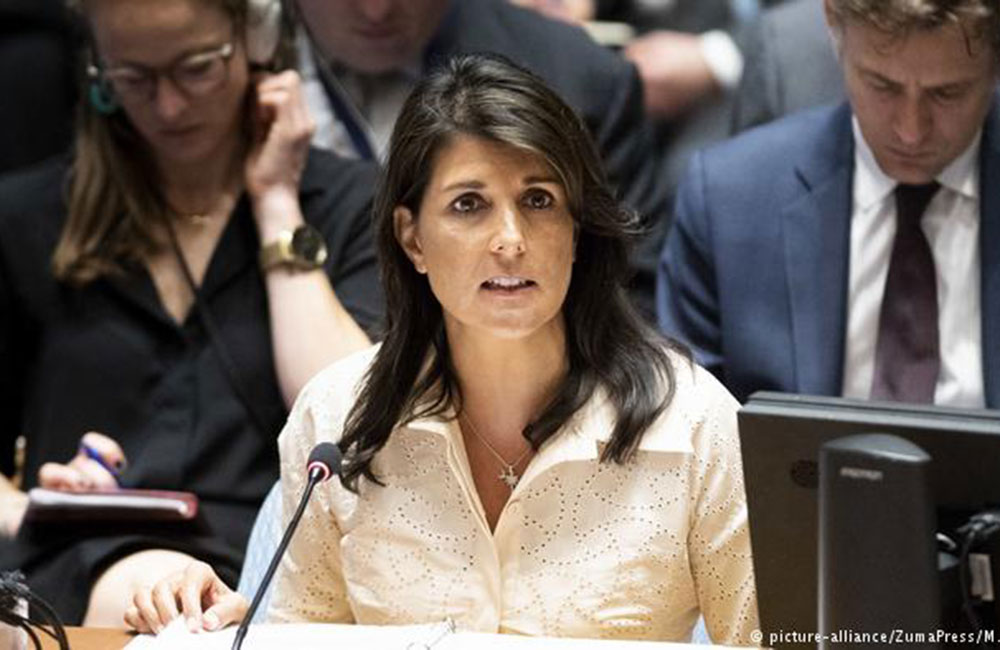
US quits UN human rights council
The US is withdrawing from the United Nations human rights council, the Trump administration announced on Tuesday, calling it a “cesspool of political bias” that targets Israel in particular while ignoring atrocities in other countries.
The US ambassador to the UN, Nikki Haley, said she had travelled to the council’s headquarters in Geneva a year ago to call for reforms, to no avail.
“Regrettably it is now clear that our call for reform was not heeded,” Haley told reporters at the state department. “Human rights abusers continue to serve on, and be elected to, the council.”
She added: “The world’s most inhumane regimes continue to escape scrutiny and the council continues politicising and scapegoating of countries with positive human rights records in an attempt to distract from the abusers in their ranks.”
“For too long the human rights council has been a protector of human rights abusers and a cesspool of political bias.”
The UN secretary-general, Antonio Guterres, expressed regret about the US withdrawal. The organisation’s top human rights official, Zeid Ra’ad al-Hussein said in a tweet: “Given the state of human rights in today’s world, the US should be stepping up, not stepping back.”
Source : The Guardian
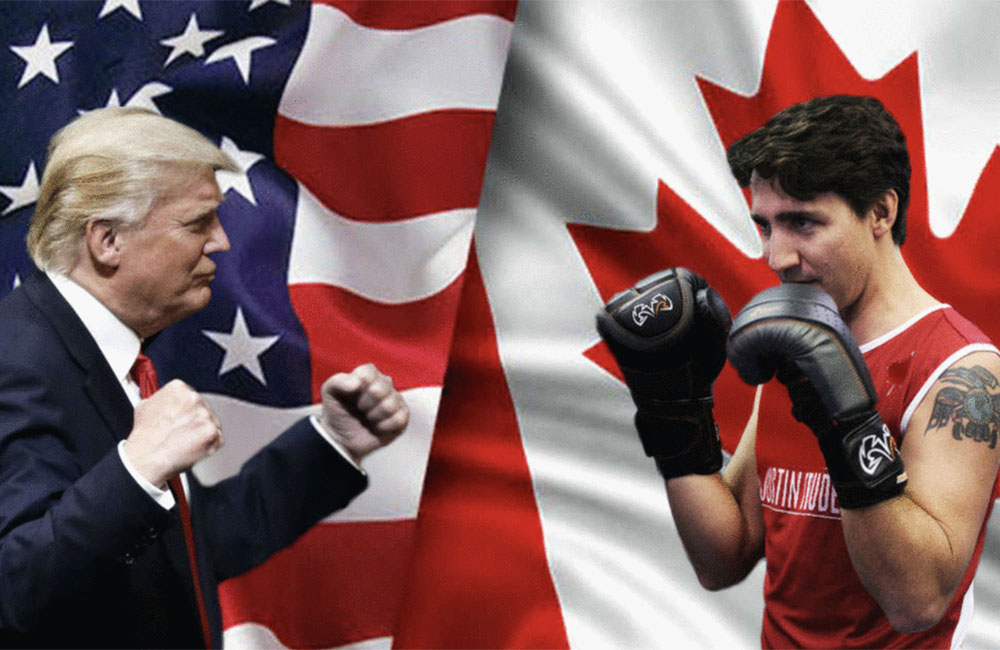
G7 summit ends in disarray as Trump abandons joint statement
US President Donald Trump has retracted his endorsement of the joint communique issued at the end of the G7 summit, accusing Canada of "dishonesty".
He said that other countries were imposing "massive tariffs" on the US.
The joint communique, advocating a "rules-based trading system", was reached despite tension over US tariffs on steel and aluminium imports.
Canadian Prime Minister Justin Trudeau vowed afterwards to press ahead with retaliatory tariffs on 1 July. Speaking at a news conference, he described as "insulting" Trump's decision to invoke national security concerns to justify steel and aluminium tariffs.
"It would be with regret but it would be with absolute clarity and firmness that we move forward with retaliatory measures on 1 July," Trudeau said. "Canadians are polite and reasonable but we will also not be pushed around."
His words contained nothing he had not said before, both in public and in private conversations with Trump, his office said later.
The EU said it would stick to the joint communique despite Trump's decision.Trump had earlier signed the joint statement agreed by all the G7 nations despite the trade row.
Source : BBC
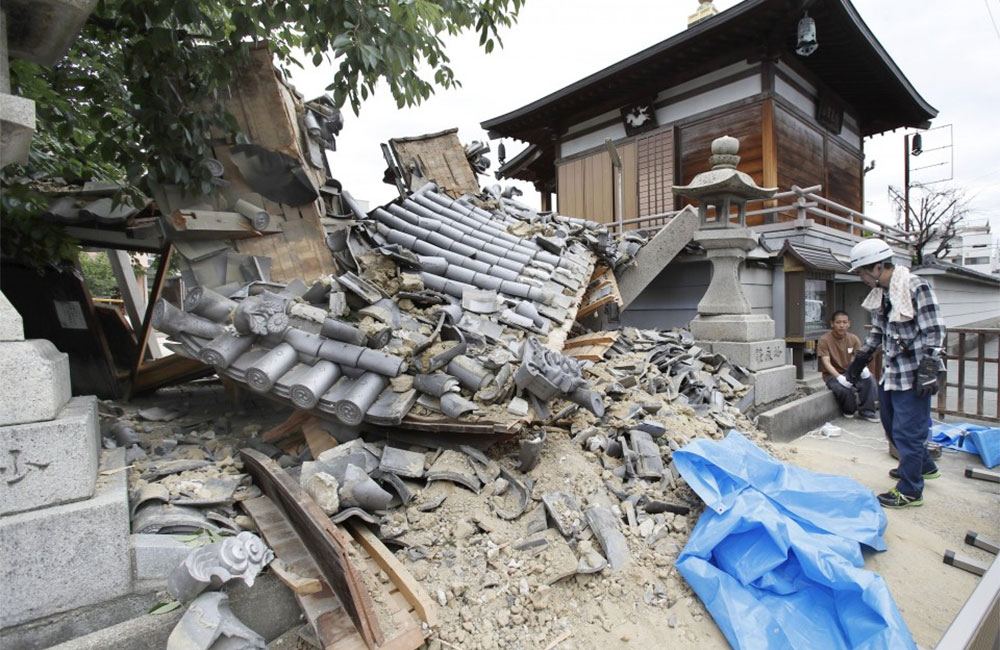
Japan hit by 6.1 magnitude earthquake
A strong earthquake in Osaka, Japan has killed at least three people, including a child, and injured more than 200. Airports in the area were closed for several hours, train lines interrupted and factories had to halt production.
The 6.1 magnitude quake did not trigger a tsunami warning and nuclear plants in the area are operating normally. Japan lies in a particularly earthquake-prone region and accounts for around 20% of quakes worldwide of magnitude 6.0 or more.
Monday's quake in Osaka occurred just before 08:00 local time (23:00 GMT Sunday) north of the city, the meteorological agency said.
A nine-year-old girl killed by a falling wall at her school was one of three confirmed fatalities. An elderly man was also killed by a collapsing wall while another was trapped below a bookcase at home, national broadcaster NHK reported.
Source : BBC

Anthony Bourdain, celebrity chef, dead in apparent suicide at 61
Famed American chef and author Anthony Bourdain is dead after taking his own life. He was 61.
CNN confirmed Bourdain’s death Friday morning.
“It is with extraordinary sadness we can confirm the death of our friend and colleague, Anthony Bourdain,” the network said in a statement.
“His love of great adventure, new friends, fine food and drink and the remarkable stories of the world made him a unique storyteller.”
“His talents never ceased to amaze us and we will miss him very much. Our thoughts and prayers are with his daughter and family at this incredibly difficult time.”
CNN said Bourdain was in France working on a story for his award-winning series Parts Unknown when he was found “unresponsive” in a hotel room Friday morning by his close friend and French chef Eric Ripert.
Bourdain’s death comes the same week that another American figure had taken their own life. Kate Spade was found dead in her New York apartment on Tuesday, June 5. She was 55.
Bourdain was a host on the Food Network and the Travel Channel before joining CNN in 2013.
CNN’s Brian Stelter described the storyteller as a “beloved member of the CNN family.”
“He loved travelling the globe, talking with people about life and love and death,” Stelter said. “His show was technically about cooking, about culture but really it was about the human condition. It was about exploring what makes us all tick.”
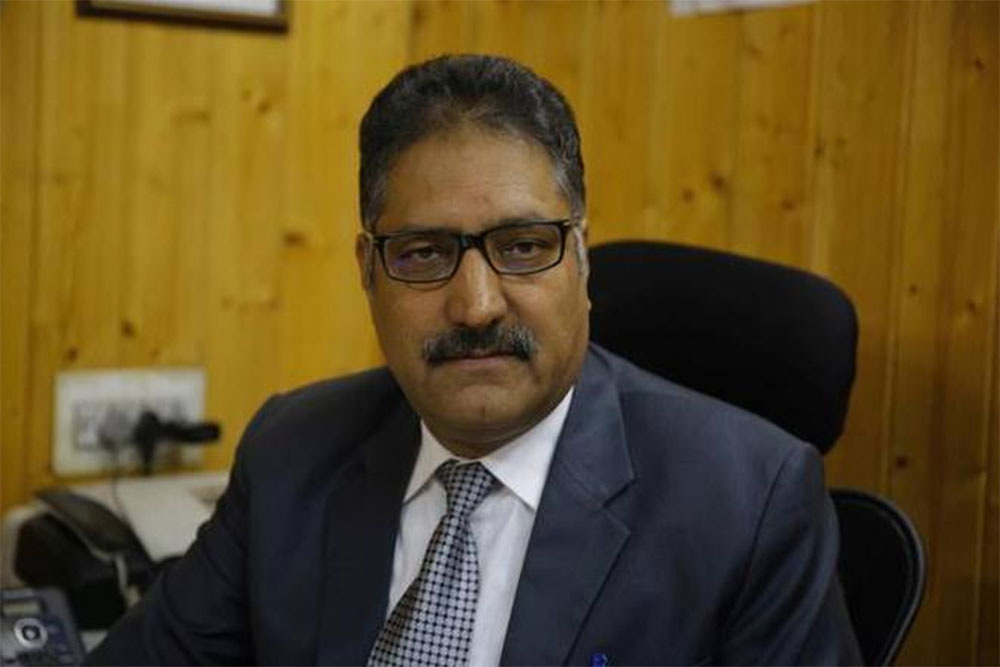
Kashmiri journalist Shujaat Bukhari shot dead by terrorists
Shujaat Bukhari, the editor of prominent Kashmiri English daily Rising Kashmir, was shot dead in Srinagar, the summer capital of Jammu and Kashmir, sending shock waves throughout the region.
His vehicle was surrounded by a group of suspected militants who opened fire on him and his security personnel. Two security personnel later died as a result of their injuries at a hospital.
Bukhari's colleague said that he had just stepped outside his office after finishing his daily work and was heading to break his fast when the attack took place
Bukhari was one of the few moderate and bold voices in Kashmir who stood for dialogue between India and Pakistan to resolve the Kashmir dispute.
Bukhari had worked for several top national and international publications and written hard-hitting articles, never shying away from taking an unpopular stand. He was special correspondent with The Hindu newspaper from 1997 to 2012 and continued to write for Frontline magazine.
The Press Club of India has expressed its shock and dismay over the incident in the Kashmir valley.
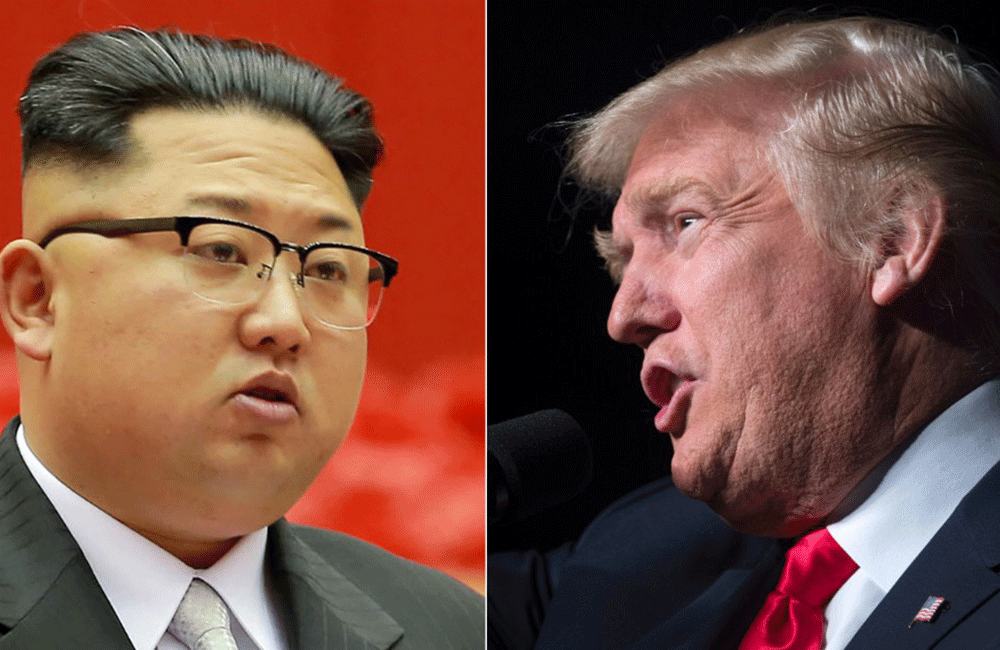
Trump-Kim meeting: Preparations going well, says US
The US has said preparations for next week's meeting between President Donald Trump and North Korean leader Kim Jong-un in Singapore are going well.
The White House said the two men would first meet at 09:00 local time and that Mr Trump was receiving daily briefings. But it said sanctions would not be lifted against North Korea unless it gave up its nuclear weapons.
With one week to go to the summit, hosted by Singapore, remarkably few details have been publicly confirmed. It remains unclear exactly where in the city state the two will meet.
Discussions on the denuclearisation of the Korean peninsula are expected to be high on the agenda, although some analysts have speculated that a formal end to the Korean War is also on the table.
There was initially much uncertainty over whether the summit would go ahead at all, and it was briefly called off last month by Mr Trump after a dispute with the North Koreans.
Source : BBC
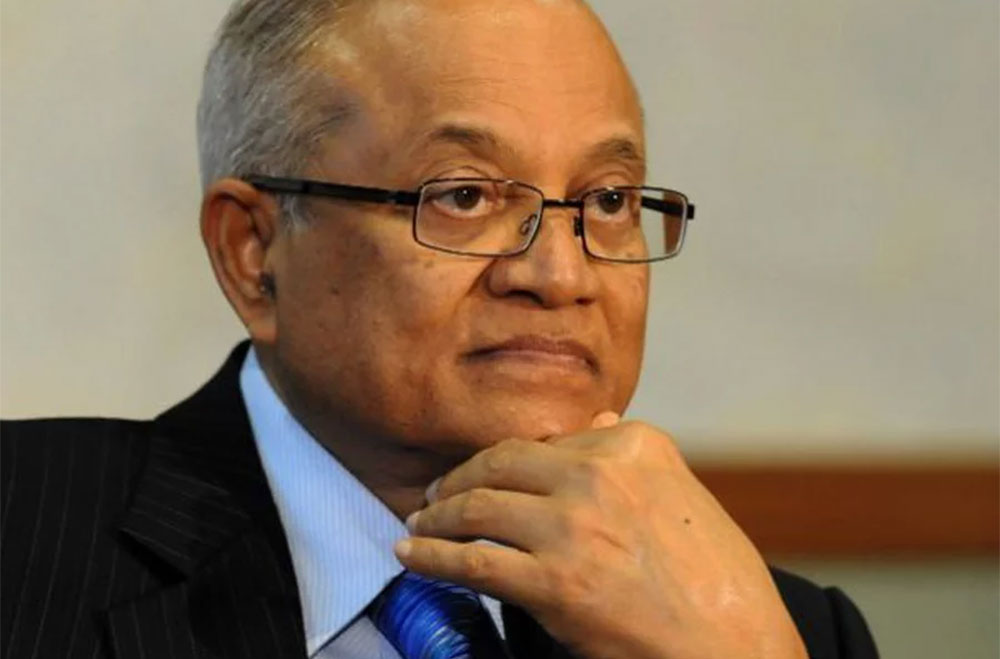
Former president Maldives sentenced for obstruction of justice
A court in the Maldives on Wednesday convicted former president Maumoon Abdul Gayoom and the sitting chief justice for obstruction of justice and sentenced them to 19 months in prison.
The trials are widely seen as part of a plan by President Abdulla Yameen to tighten his grip on power ahead of elections in September at which he seeks a secondfive-year term against the opposition yet to decide on a single candidate. The government denies this.
The country of 400,000 people is popular with tourists but has seen political unrest since its first democratically elected leader, Mohamed Nasheed, was forced to quit amid a police mutiny in 2012.
Nasheed was convicted of terrorism charges in 2015 and sentenced to 13 years after a trial criticized as unfair.
Gayoom, who is the country’s longest-serving leader, Chief Justice Abdulla Saeed and Supreme Court Justice Ali Hameed were found guilty on Wednesday after they were charged for refusing to hand over their mobile phones for a police investigation.
They received sentences of 19 months and six days.
Source : Reuters
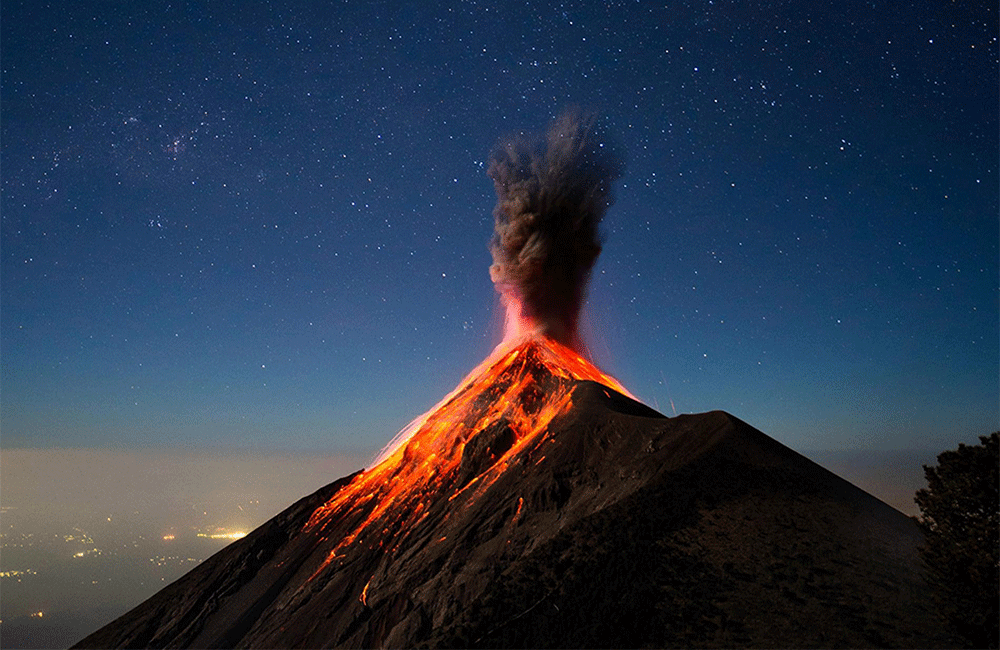
Dozens die in Guatemala volcano eruption
Twenty-five people have been killed and hundreds injured after Guatemala's Fuego volcano erupted, officials say.The volcano, about 40km (25 miles) south-west of the capital Guatemala City, has been spewing rocks, black smoke and ash into the sky.
The National Disaster Management Agency (Conred) said a river of lava hit the village of El Rodeo, destroying houses and burning people inside. In Guatemala City, La Aurora airport has been closed due to ash.
President Jimmy Morales said a national emergency response had been launched."We think that there could be a state of devastation in at least three areas," President Morales said.
This eruption is the biggest since 1974, according to local experts.
Source : BBC
Page 23 of 41
